Event honors late director of Santiago Center and celebrates a century of unique history between Chile and Columbia
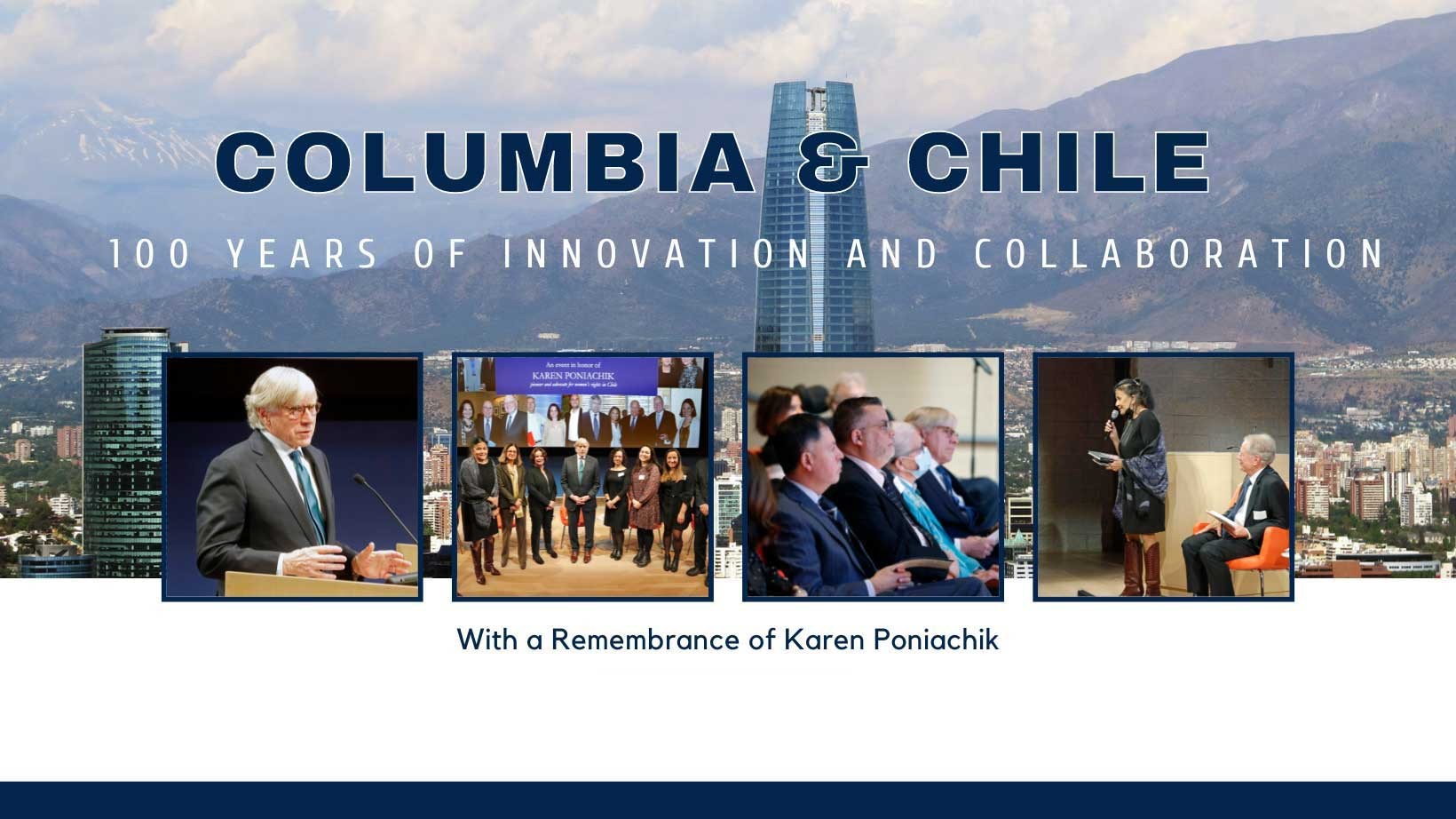
President Lee C. Bollinger, the visionary behind the creation of the Columbia Global Centers, joined Wafaa El-Sadr, executive vice president of Columbia Global Tuesday to honor the Santiago Center’s late founding director, Karen Poniachik, and to showcase the publication of Santiago’s book on the unique, 100-year relationship between Chile and Columbia University.
Karen’s friends and family were in the Forum audience on the Manhattanville Campus and watching the livestream from around the world. Also in attendance, Mario Artaza, the Consul General of Chile in New York, and René Ruidíaz, Deputy Permanent Representative, Permanent Mission of Chile to the United Nations.
Bollinger indicated that when he met Karen at the center’s launch in 2011, and realized that she had been not only Chile’s first female minister of mining, but a nationally recognized leader, he remembers thinking, “This is going to be a success in Santiago, ” Bollinger said.
“Karen was not just a great director,” Bollinger said, “she was a great figure, a great person, a great public servant, a great activist in Santiago and beyond.”
Image Carousel with 14 slides
A carousel is a rotating set of images. Use the previous and next buttons to change the displayed slide
-
Slide 1: Jean and Lee C. Bollinger, from left, with former provost John Coatsworth
-
Slide 2: Wafaa El-Sadr, executive vice president of Columbia Global
-
Slide 3: Columbia President Lee C. Bollinger
-
Slide 4: woman in audience
-
Slide 5: Vicky Murillo, director of Columbia’s Institute of Latin American Studies
-
Slide 6: Carla Magri, who oversaw the creation of the book as the center’s communications and programming coordinator
-
Slide 7: Barnard College history Professor Nara Milanich
-
Slide 8: Walter Baethgen, a senior research scientist with the Columbia Climate School
-
Slide 9: Teachers College education Professor Regina Cortina
-
Slide 10: Columbia College student Astrid Liden, recently named a Rhodes Scholar
-
Slide 11: group shot
-
Slide 12: group shot
-
Slide 13: group shot
-
Slide 14: group shot
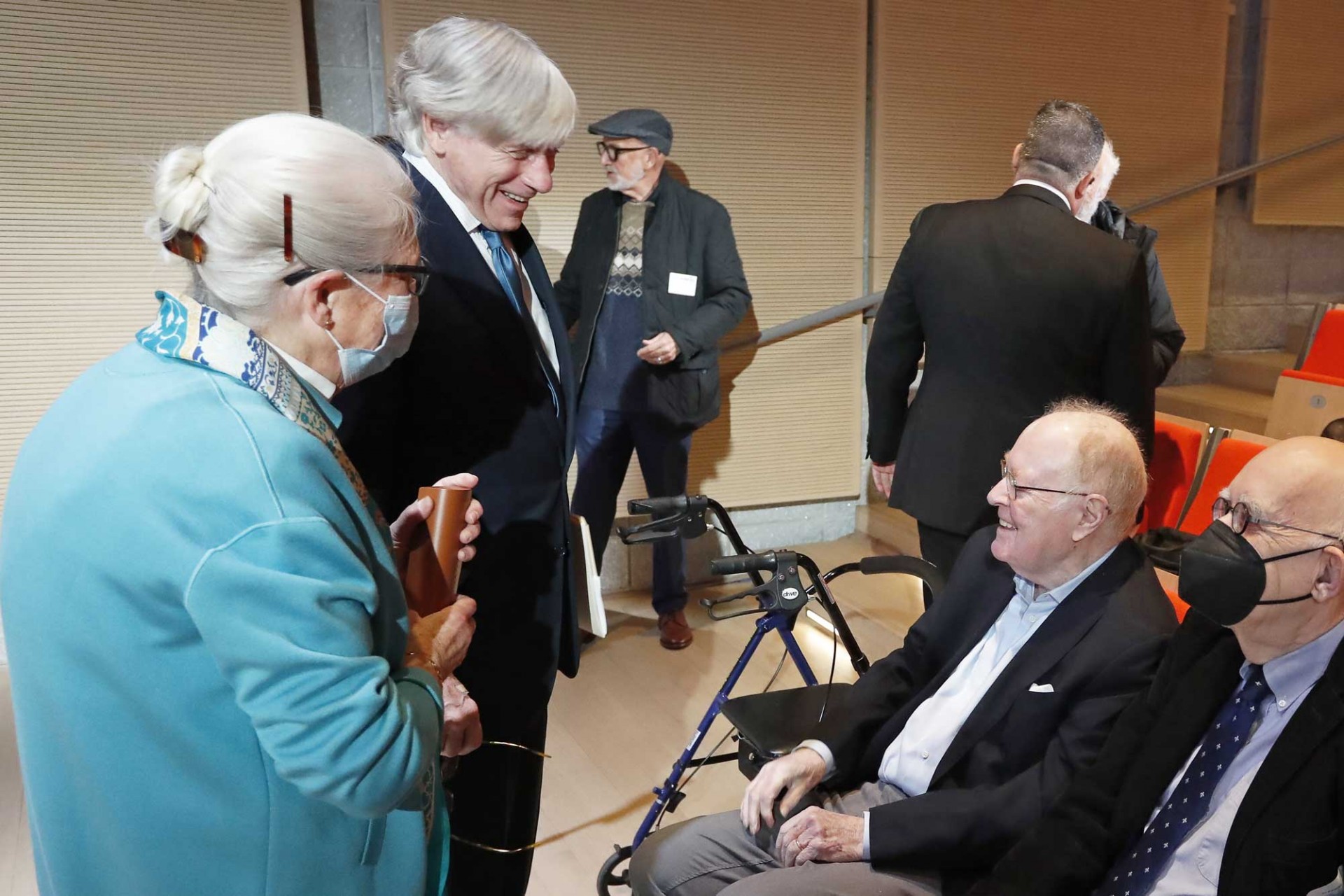
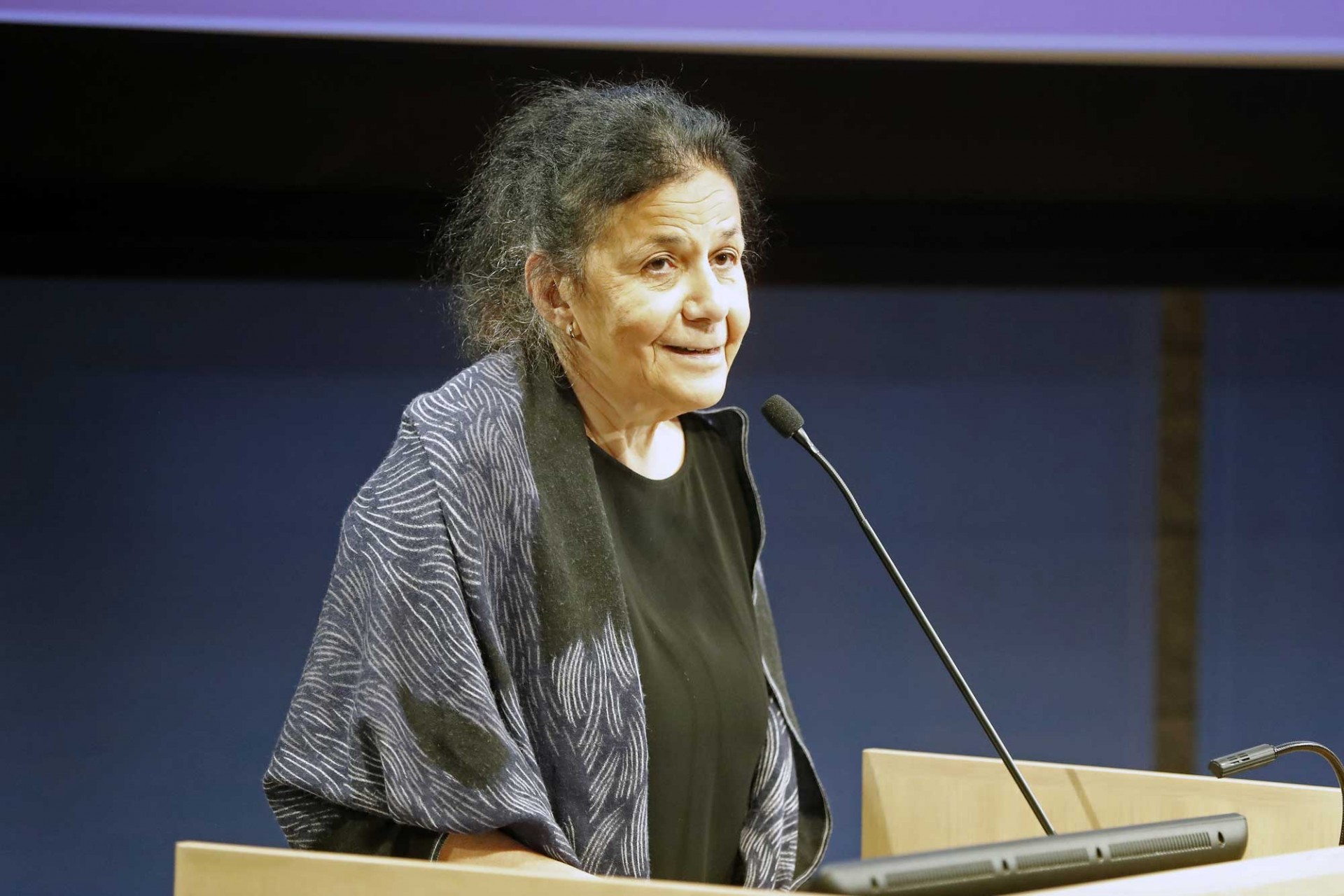
Wafaa El-Sadr, executive vice president of Columbia Global
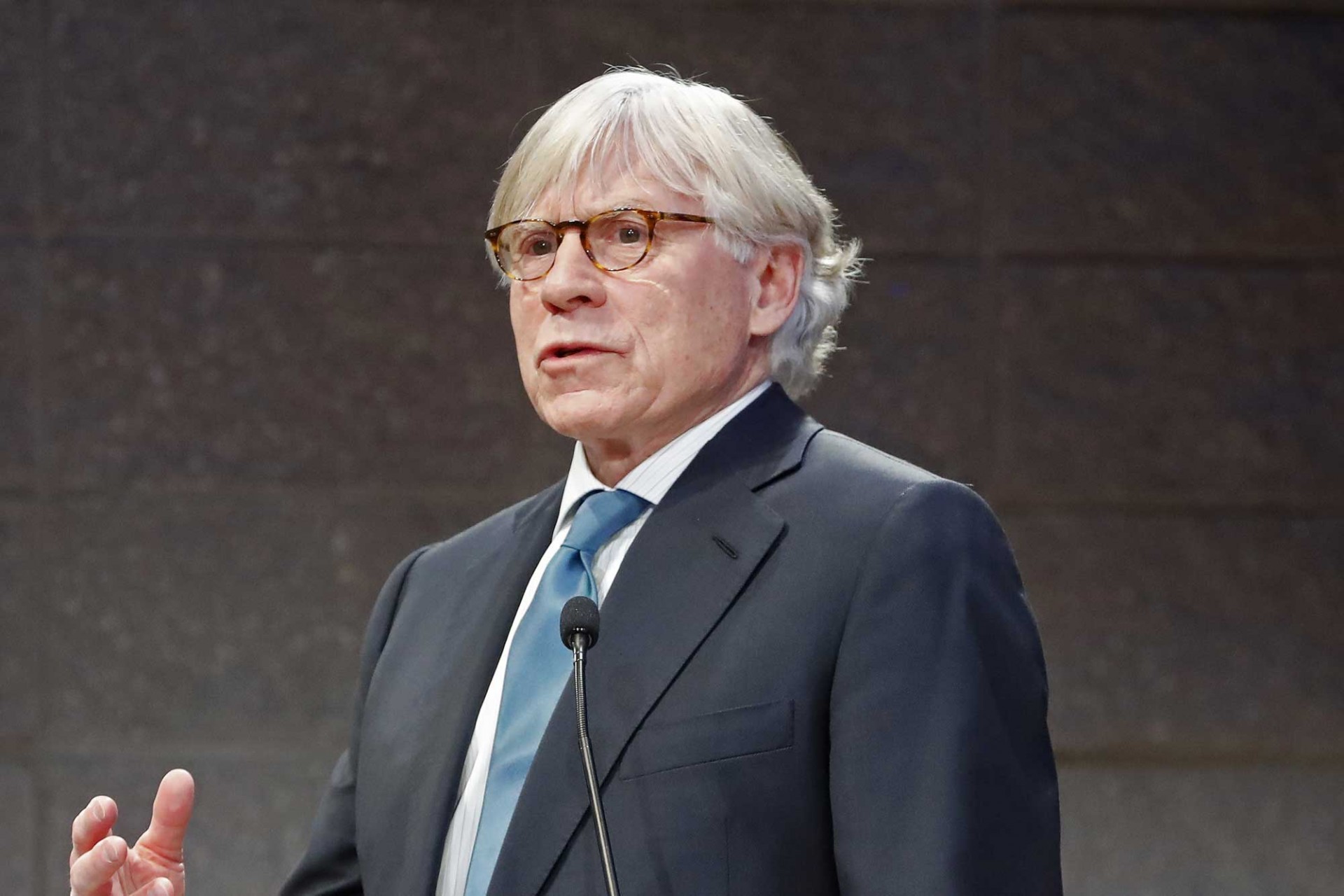
Columbia President Lee C. Bollinger
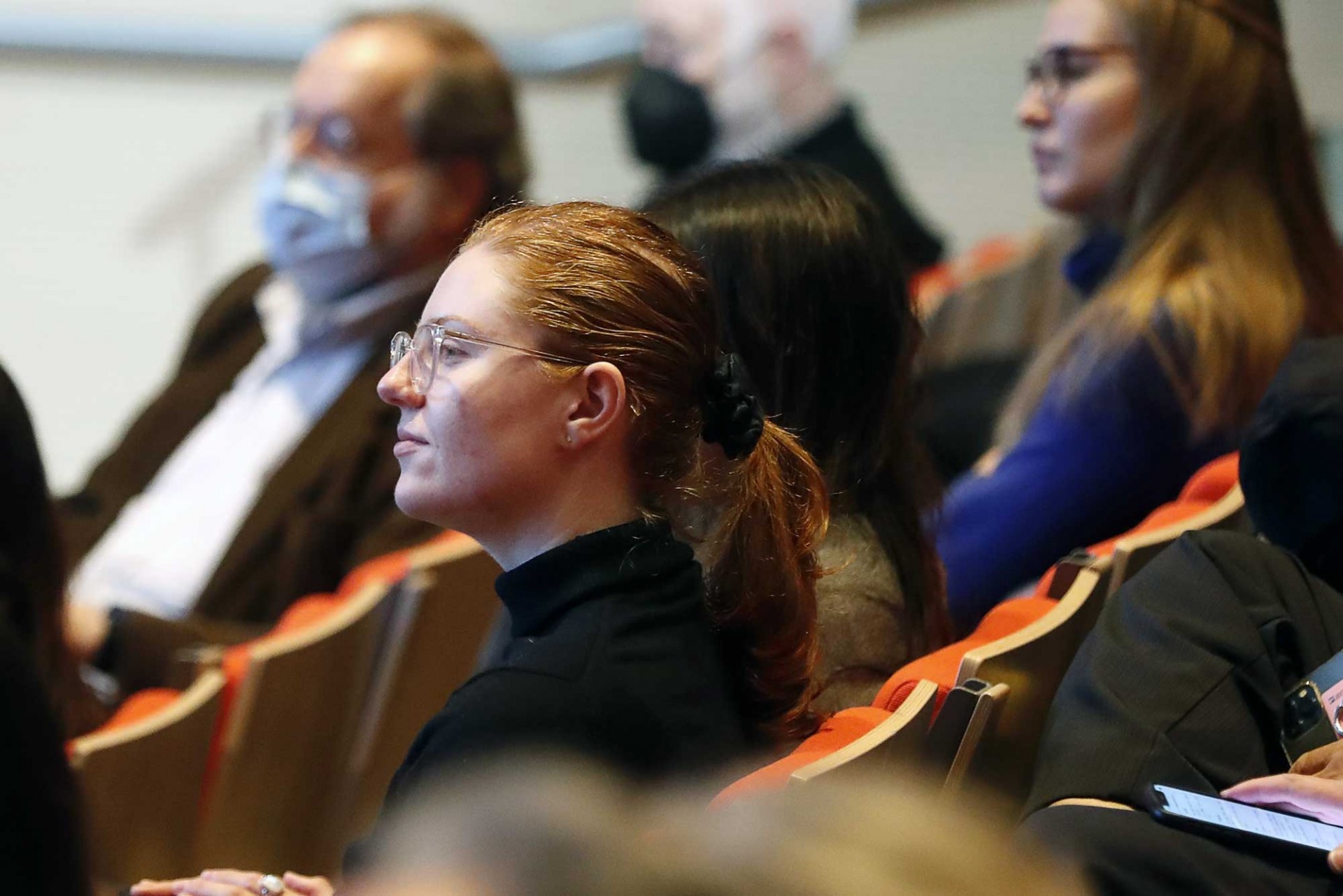
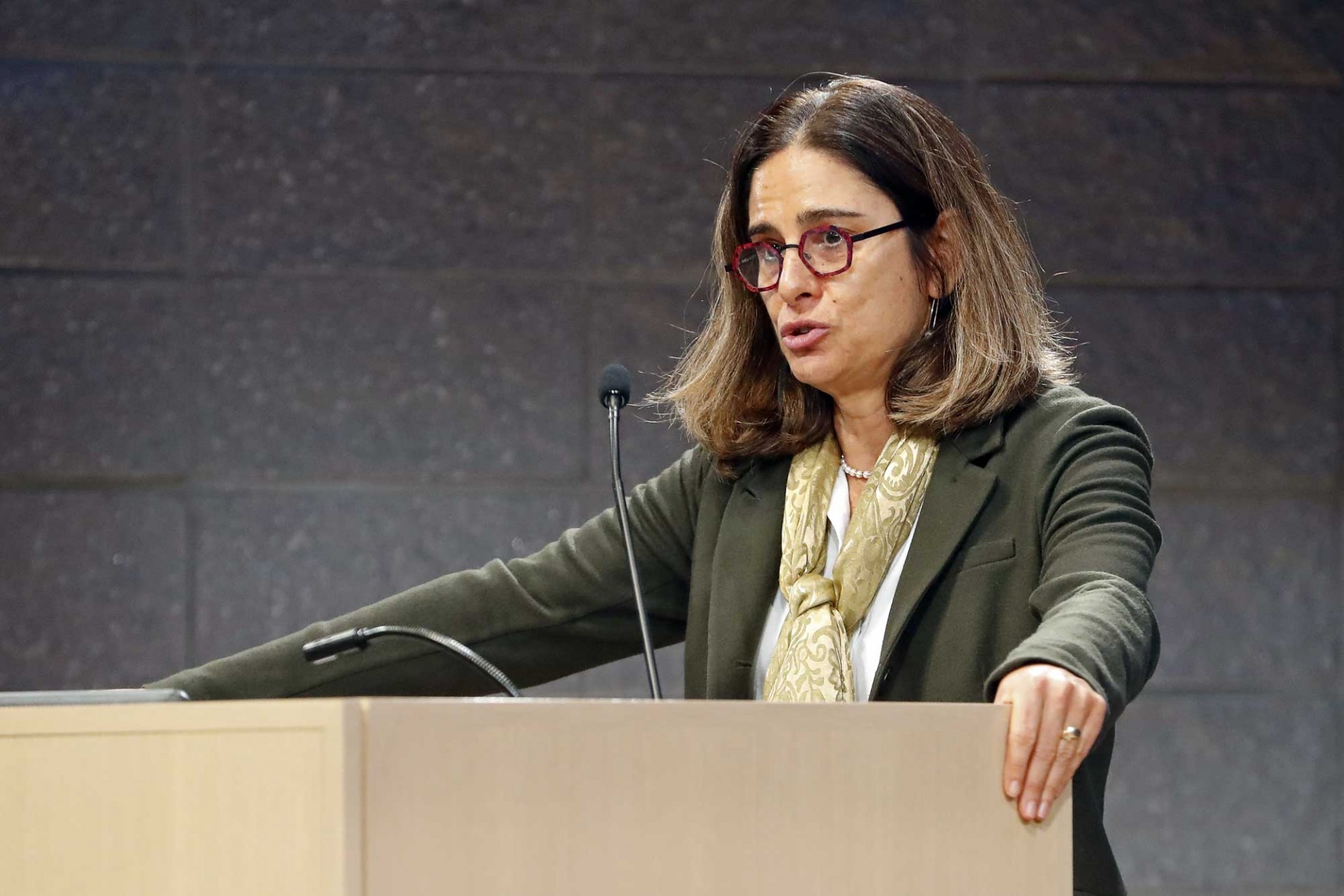
Vicky Murillo, director of Columbia’s Institute of Latin American Studies
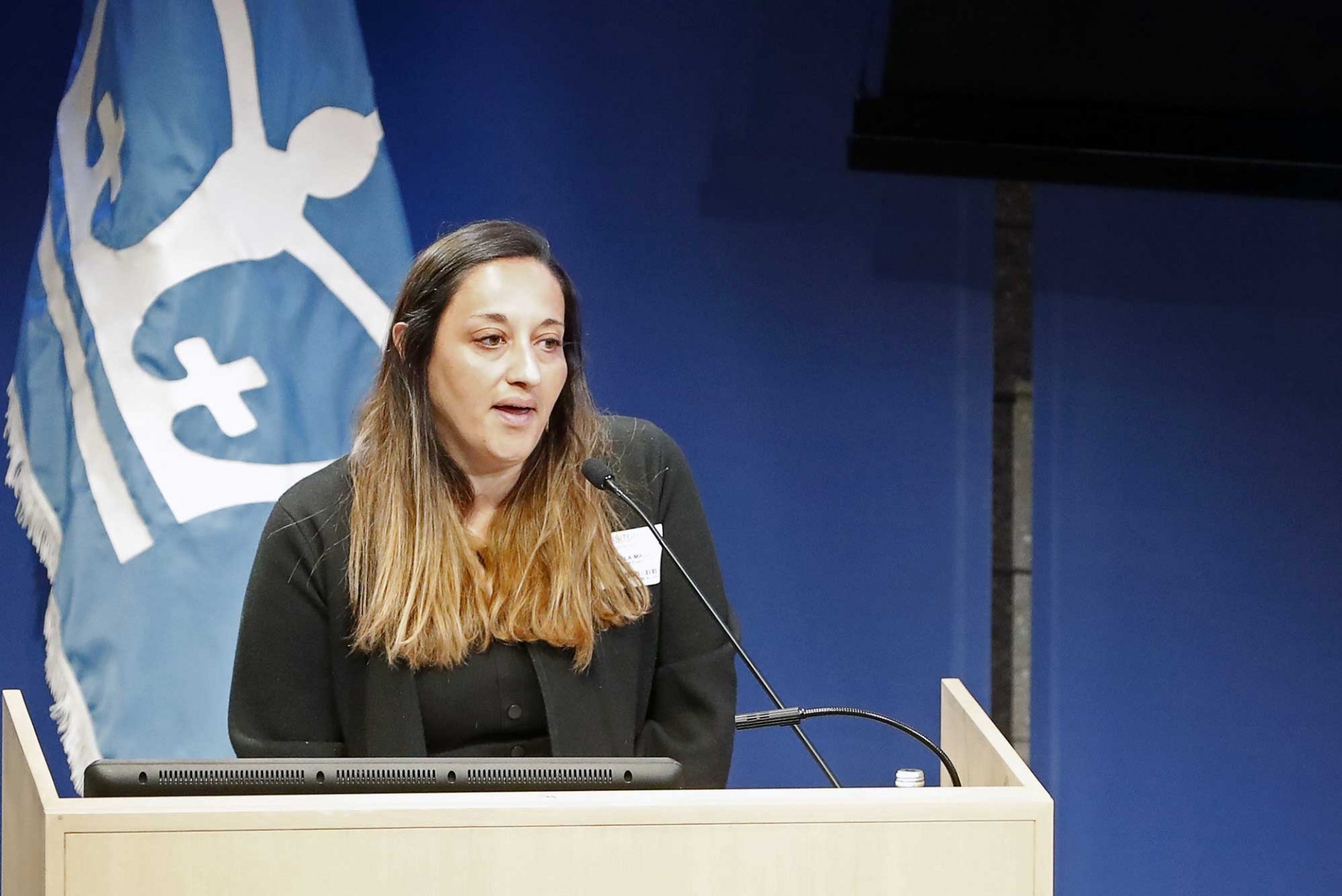
Carla Magri, who oversaw the creation of the book as the center’s communications and programming coordinator
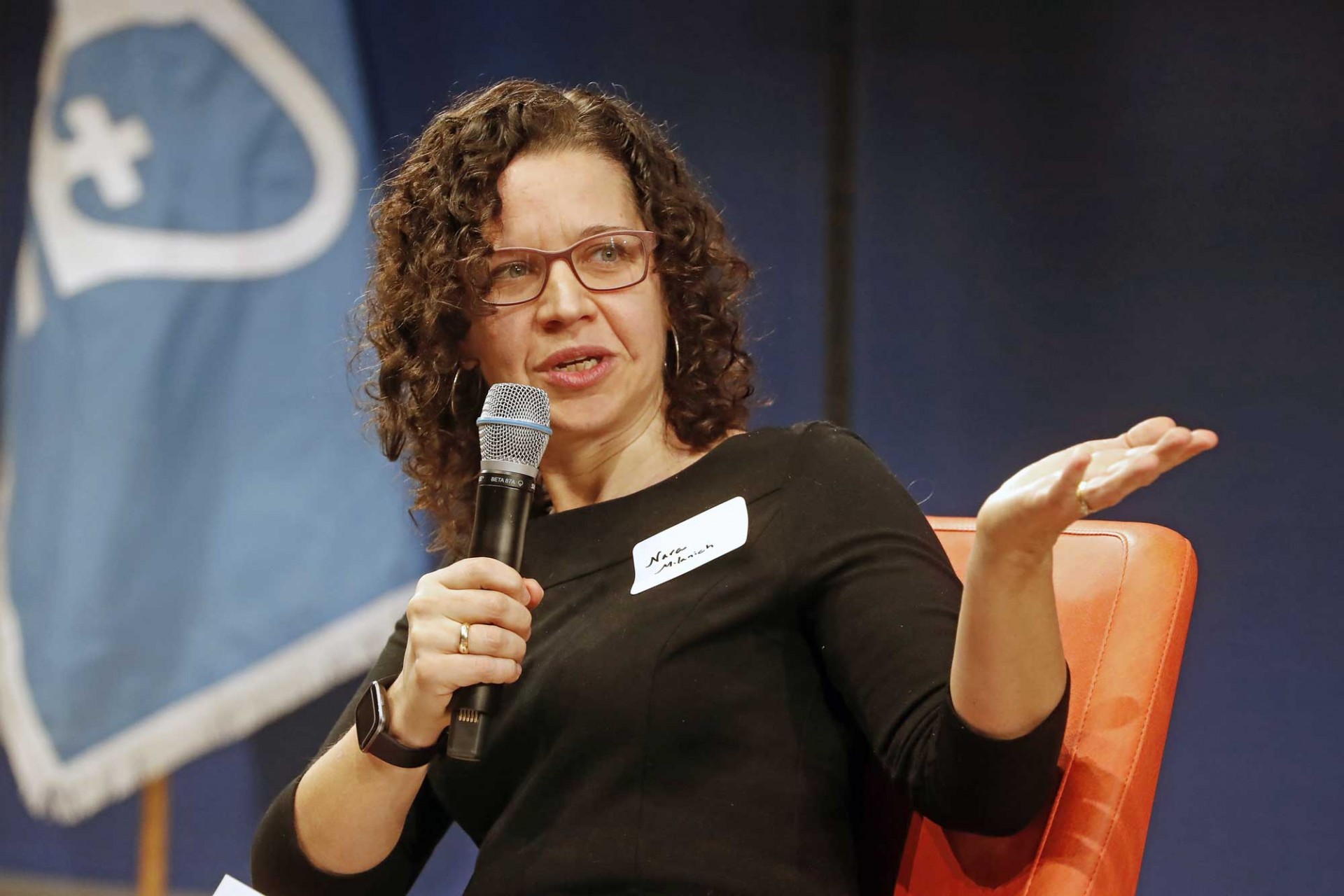
Barnard College history Professor Nara Milanich
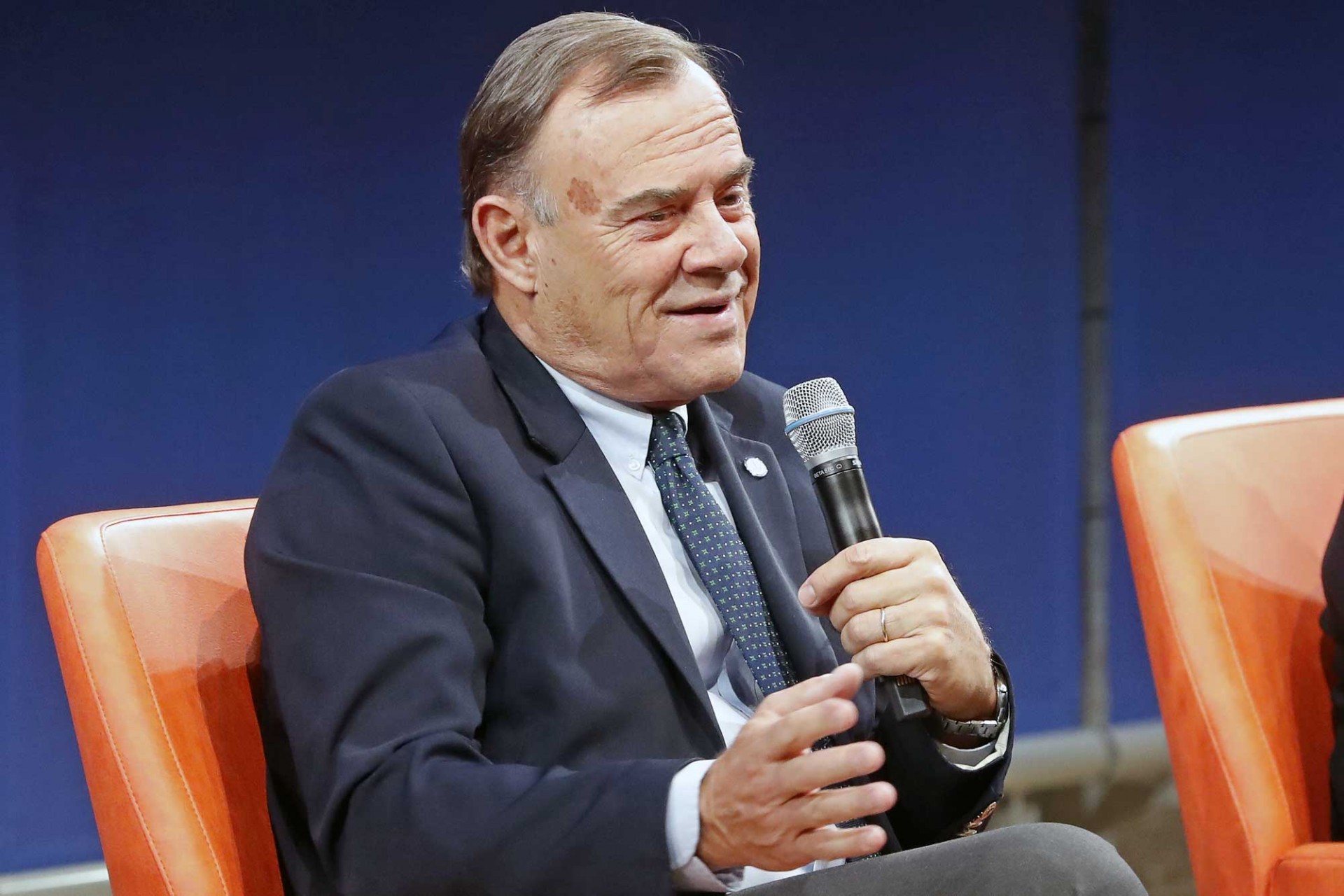
Walter Baethgen, a senior research scientist with the Columbia Climate School
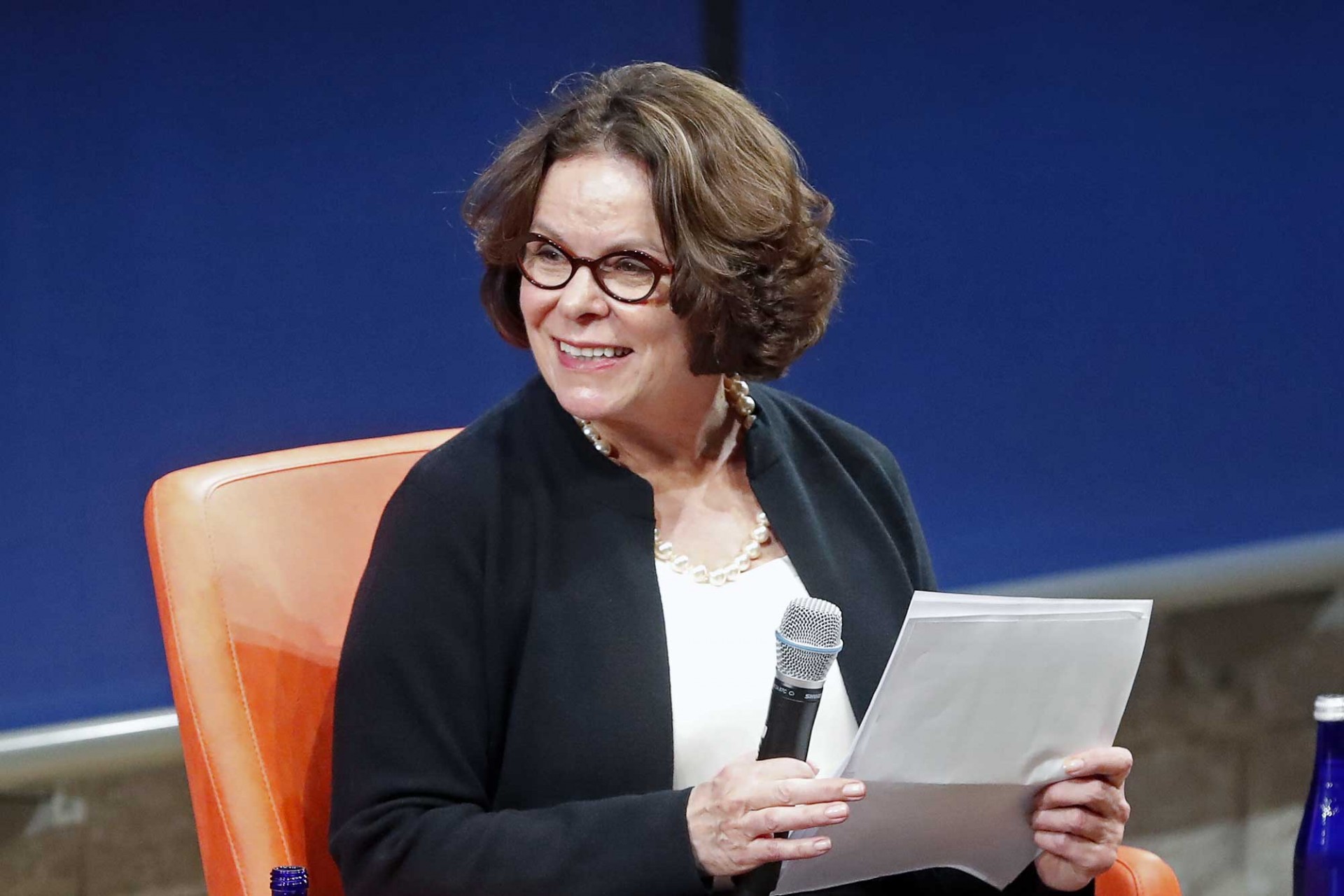
Teachers College education Professor Regina Cortina
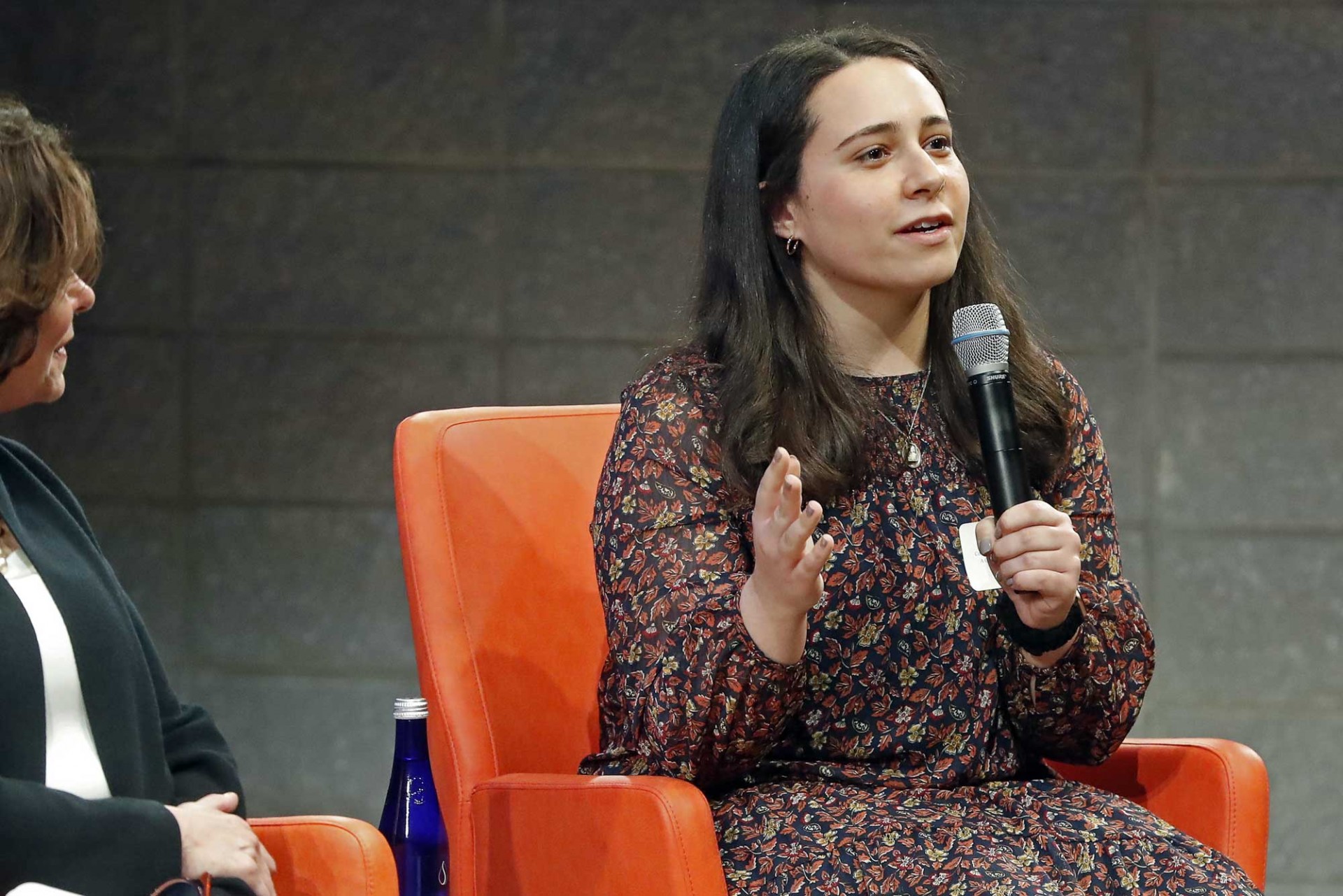
Columbia College student Astrid Liden, recently named a Rhodes Scholar
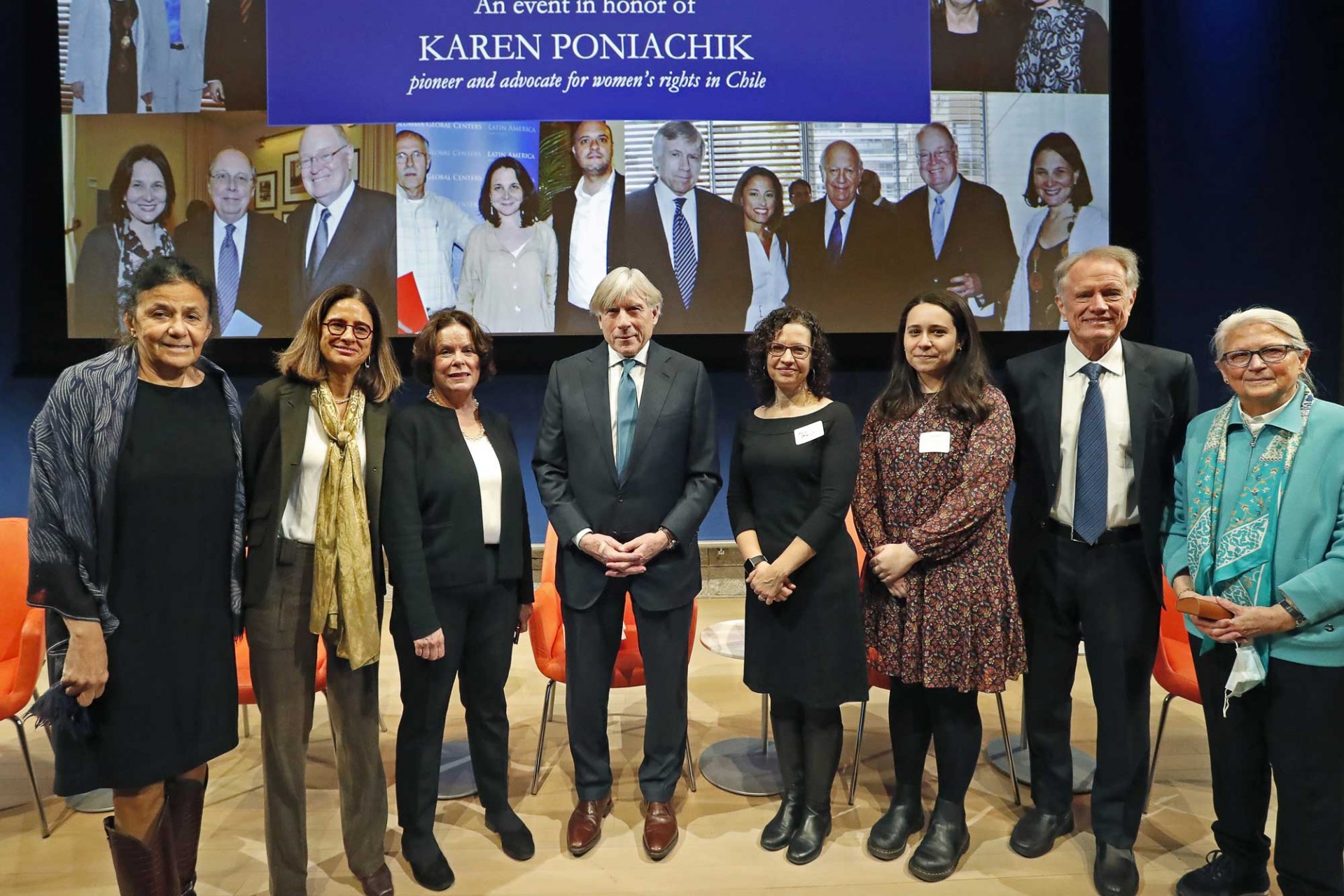
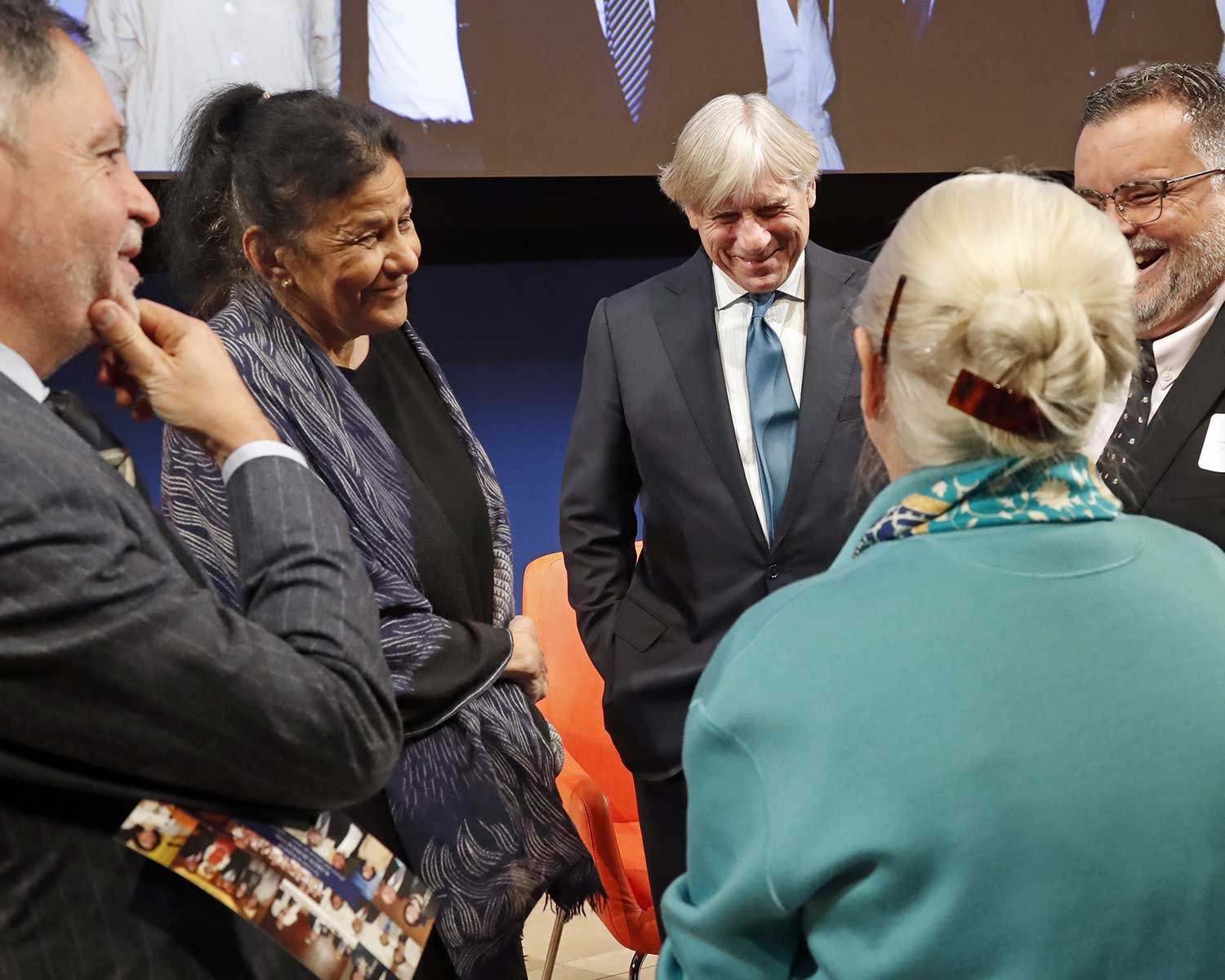
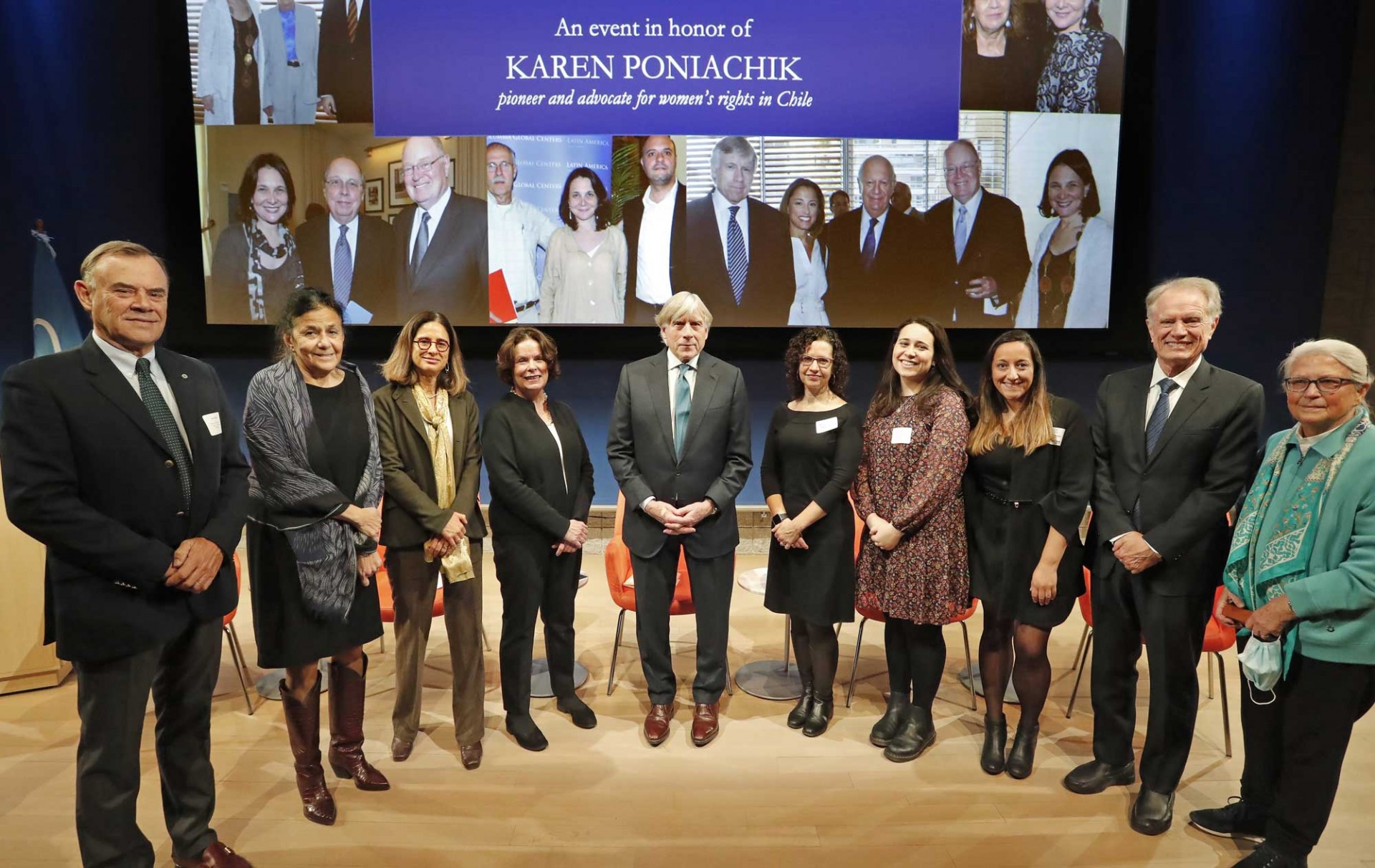
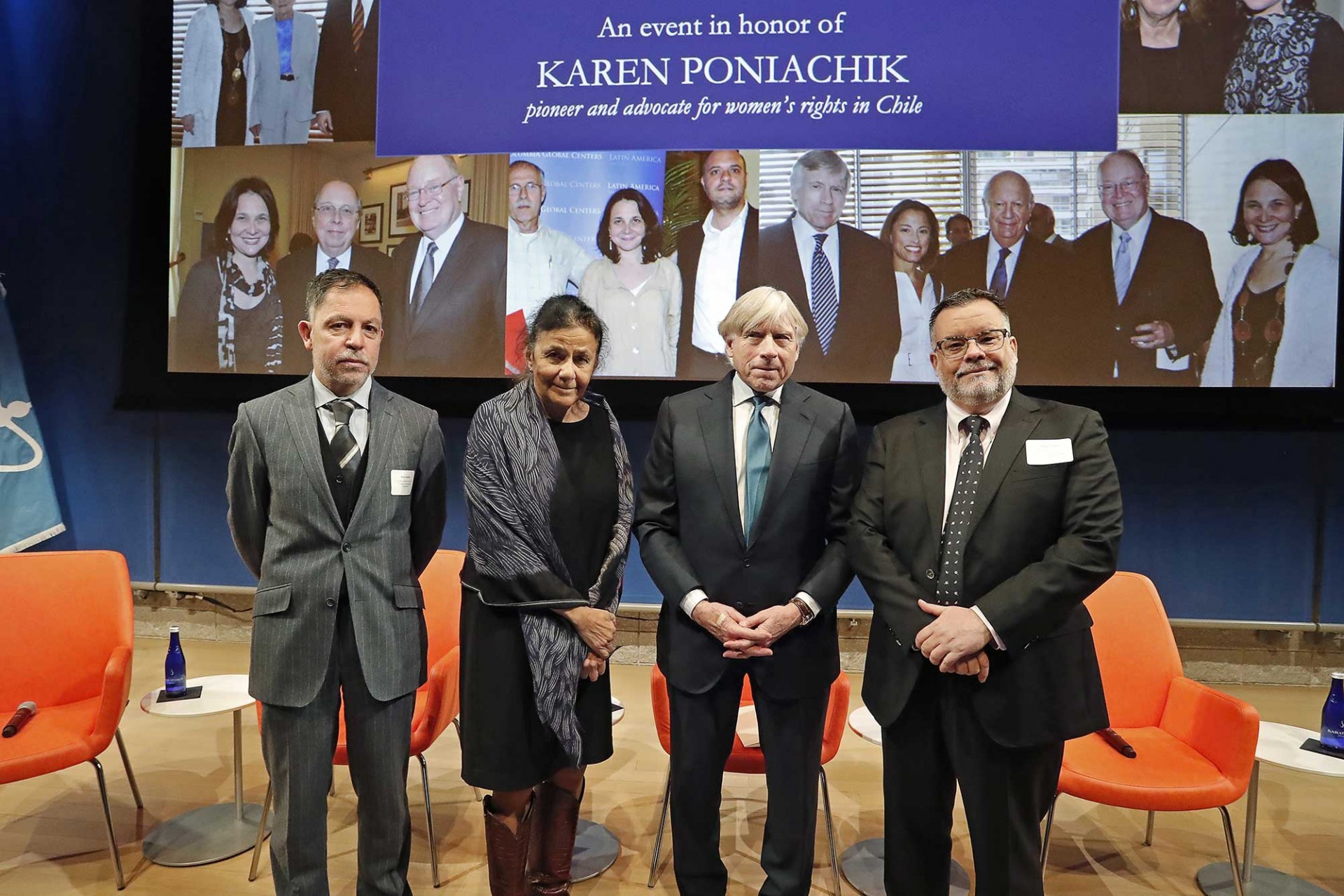
Karen’s activism was noted by other speakers at the event, including Vicky Murillo, director of Columbia’s Institute of Latin American Studies.
“She dedicated her life to building Chile’s future while making local and global connections,” Murillo said.
Karen’s legacy encompasses the highest echelons of Chile’s political, corporate, and academic landscape. She was also a trailblazer and champion of women’s empowerment, which she embodied as Chile’s minister of mining while serving under Chile’s first female president, Michelle Bachelet.
Karen studied journalism at Universidad Católica and earned her Master of International Affairs at Columbia University in New York, a decision that launched her professional relationship with the University.
Chile and Columbia
Chile’s long relationship with Columbia was the other focus of the event, which included the presentation of Columbia University and Chile: Over 100 Years of History, which was the last project led by Poniachik at the Santiago Center.
Carla Magri, the center’s develpoment and communications officer and chief editor of the book, noted that the publication is more than a book of history.
“It’s also a book that speaks to us about present collaborations and moreover, a book that looks towards the future,” she said, noting that Chile and the U.S. celebrated last week 200 years of diplomatic relations with the motto “partners for a better future.”
“That’s how we think we should look at this long history of collaboration between Chile and Columbia, as the initial 100 years of a fruitful relationship that will keep developing in the future.”
Magri said the book has four main areas of focus: Chileans who studied at Columbia during the 20th century and their contributions to their country upon their return; Chilean politicians, academics and artists who spent time in the U.S. as lecturers, researchers or visiting professors; Columbia faculty members that have worked on topics concerning Chile or mentored Chilean students; and the University’s response to the military dictatorship of Pinochet that ruled Chile between 1973 and 1990.
“Because of Columbia’s commitment to democracy and the respect for human rights, the university was a safe space for very prominent political exiles of the Chilean dictatorship,” Magri said.
The book, along with recollections of Karen, was the topic of a panel discussion hosted by Tom Trebat, director of Columbia Global Centers | Rio de Janiero. The panelists included Barnard College history Professor Nara Milanich, Walter Baethgen, a senior research scientist with the Columbia Climate School, Teachers College education Professor Regina Cortina, and Columbia College student Astrid Liden, who was just named a Rhodes Scholar.
Several panelists described Karen as a connector between people and countries.
“Karen was motivated by what she believed Chile could be for all its people,” Trebat said. "I think she grieved at how far it was from where she thought it needed to be and that’s why I think she worked until … literally the last moments of her life.”
Liden credited Karen and the Santiago Center for connecting her with a legal aid group while she was working at the center -- during a virtual internship in 2021 and in person in 2022 – on a research project on Venezuelan immigrants in Chile. Liden encouraged more students to take advantage of the opportunity the centers offer.
“The global centers for me are such an important and such a vital opportunity for Columbia as a whole but especially for students,” she said.
“From what I’ve been able to accomplish with the help of the global centers, through my own research cohorts and other research opportunities, I see that these global centers are really a point of entry and opportunity.”